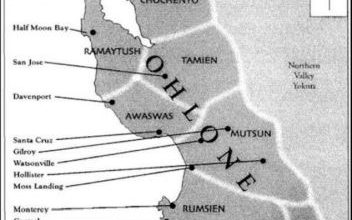Non-fiction: Ruins by Jeanne Farewell
Ruins
I am building ruins. That sounds like an oxymoron: to construct decay. The impulse perhaps stems from the pandemic. Ruins, after all, are about loss, destabilization, collapse – as seem to be our lives.

I am situating the ruins on our hill, in the foothills of the Appalachians north of New York City. I wanted a sense of mystery, an aura of the past, the sense of time-out-of-mind that ruins evoke. The setting had to be compelling in order for the ruins to be so: it had to have mood. I knew the site was right when I stood atop the hill and the wind blew.
There are many words to describe the sound of wind: sighing, moaning, howling, whistling, soughing. Yet wind has no sound. Sound occurs when the wind touches something, when it interacts. It was the clacking of branches and the ticking and clicking of dried autumn leaves, and the gusts rippling grasses that deepened my sense that this was the spot for ruins.
Ruins fire the imagination. Shelley’s poem Ozymandias conjures up from only a remnant a lost civilization in the desert. Poetry poured from Wordsworth’s pen after he gazed upon the skeleton of Tintern Abbey. Turner painted Tintern, again and again and again. The canvasses of Caspar David Friedrich are eerie evocations of moonlit remains, Thomas Cole’s Coarse of Empire includes dramatic depictions of a perishing world, Edward MacDowell’s “The Deserted Farm” is a piano piece of haunting sadness…you can almost see the rusted gap-teeth of the harvest machine, the broken glass of the farmhouse window, the slumping barn….Schumann’s music is full of fragments, of wisps, of bits. The romantics loved ruins.
Ruins require a double vision: you have to perceive them both in their current dilapidated state and in their former whole one. You have to reconstitute them in your mind, to exist in the present and the past at the same time. The banqueting hall of the kings and queens of England’s Sudeley Castle has no roof, and the walls are pierced with glassless windows through which the weather is admitted: bring your umbrella and a fertile mind when you dine.
My ruin is of stone to insure its permanence. I have a doorway but no door, a window that clearly demonstrates the origin of the word “window” as “wind-eye,” and an imaginary boundary lacking walls. I suggest a perimeter with tumbled stones here and over there; suggest advanced age with rocks that have grown skins of lichen. Stones coated in moss are prized since they show the accretions of time.
Inside my ruin – a partial room – are signs of those who once lived here. I will install a stone chair, a rock table, and what could have been an oven – I cannot say for sure. I will leave the saplings that have sprouted in what I consider to be the floor, to demonstrate that nature has reclaimed the space that was her own. To assist her, I add a wood-vamp vine that will scramble over what is left of what once was.
I must restrain myself from being driven by design. I plant an ironwood tree with its gray muscled skin, and ring it with a circle of bark. The gardener in me imagines cultivating this yard, but it is there that I must stop.
To make my ruins convincing, I will have to concoct a narrative for persons who visit, when the days of interaction return. People will want to know the story behind this relic. In my mind, it has become a vanished settlement. There was a vegetable patch, I will explain, and goats on the hills. A basket-weavers hut, and what were remnants of a gristmill, I think – (I will need a millstone) – but the mountain stream that powered the wheel has long since dried up….
“The effects of time,” I will shrug. “Decay and dissolution. Change, disintegration. Do you like it?”
My ruin is complete. For the moment. But having been bitten by the bug of deterioration, I imagine that I might be inclined to further participate in the ongoing drama of demise.
The contemplation of ruins can be a melancholy activity: it compels you to reflect on absence. And compels you to reflect on now. And so I reflect:
I miss the people who were once in my life. I miss the job I was trained to do. I miss my travels to England, rich with explorations of ruins.
Come visit. Please. Soon.

About the author
Jeanne Farewell’s most recent novel is Wilderhall, a National Indie Excellence Award Finalist. Wilderhall is about a ruin. Farewell is the author of six novels and a short story collection. Her essays, book reviews, and stories have been published in a variety of literary magazines and journals, among them World Literature Today, The Manhattanville Review, Potomac Review, The MacGuffin, Art Times, Byline, Balanced Rock, Whetstone, Pennsylvania Literary Journal, and London’s First Knight. Online publications include essays on nineteenth-century topics in the Victorian Web. Farewell is a classical pianist who has performed in the U.S., Europe, U.K., and China. She gives lecture-recitals about music and its association with art and literature.









